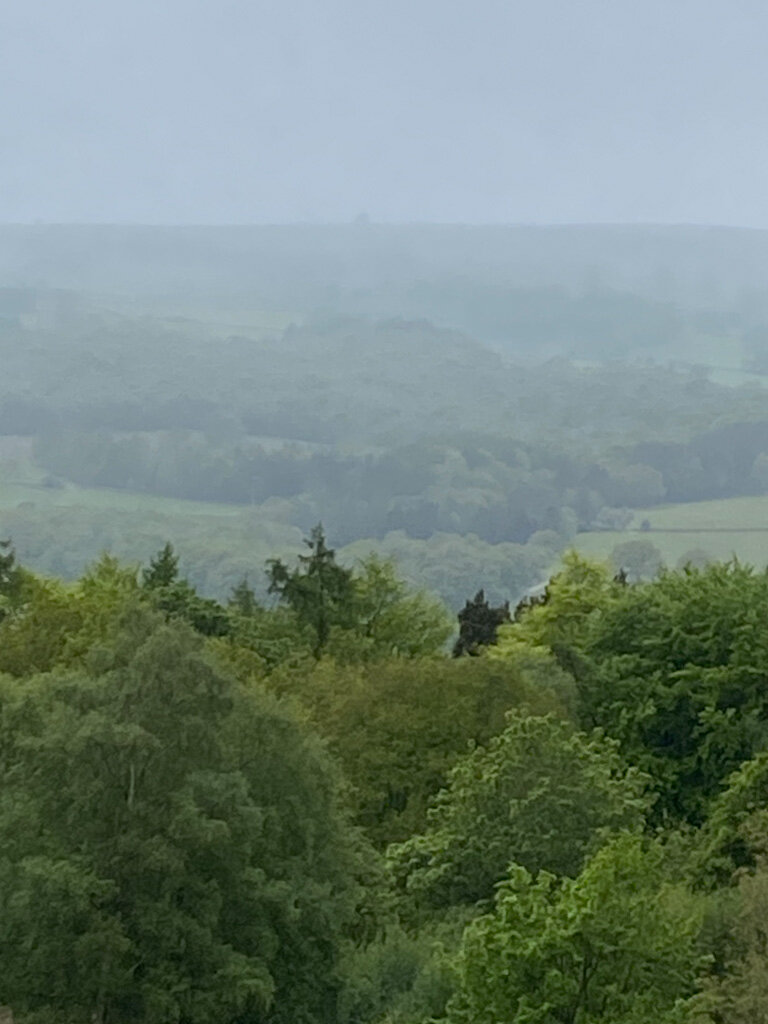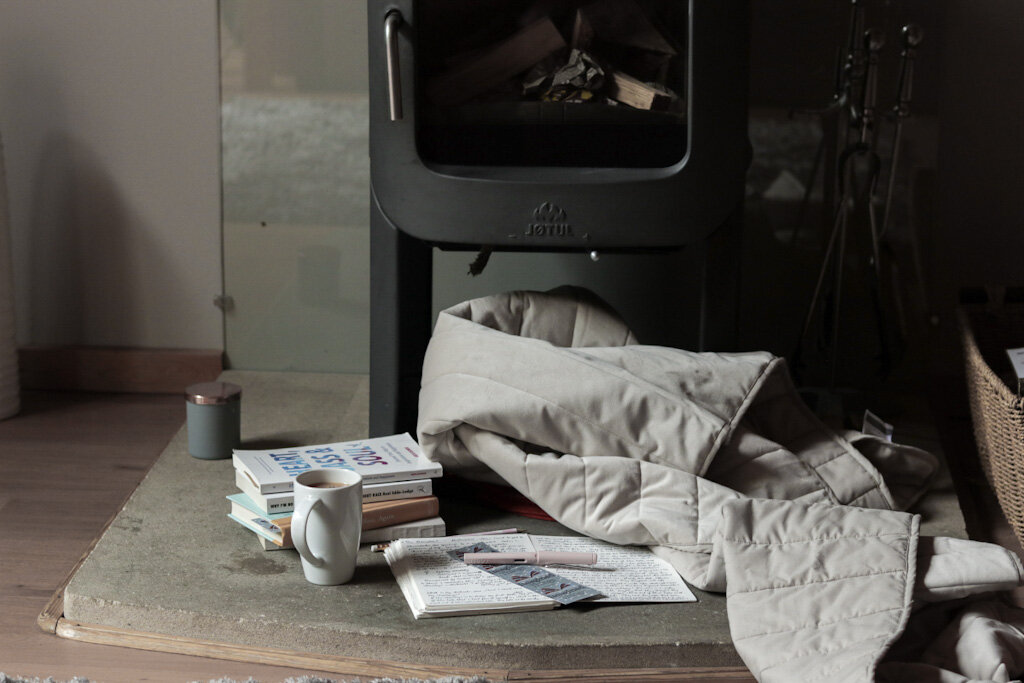I felt lighter!
How could this be possible? In the current Covid19 world of anxiety, uncertainty, and restraints on our personal freedom, how could I feel lighter? Lack of exercise, increased access to the fridge, and a pretty non-existent list of social events has perhaps induced a laissez faire attitude towards self-discipline in general. Have you wondered, why have I not achieved all those things I had planned for lockdown? I sigh as I watch something furry grow on the sourdough starter in the fridge and the bananas, mere wallflowers in the corner, have turned black and limp. My yoga mat has had one outing on the living room rug and someone had mistaken the spirulina powder in the store cupboard for oven cleaner. What is the cause for such ambivalence and inertia? Even those who have been able to work from home have gained valuable commute time; surely that could have been at least a ten-minute meditation or yoga session?
Time is not always the answer to getting more done
Alone time is often what is required.
Opted alone-time is not related to the loneliness felt by those who have had to be alone during the Covid19 pandemic. Loneliness in the absence of family and friends is a worry and is not conducive to health and happiness. Mental and physical space obtained through choice, on the other hand, can recharge you, motivate you, and ignite your creativity.
I recently stumbled across an article in The New York Times that discusses the benefit of ‘being alone’. As a generally sociable but yet introverted person, I have acknowledged my need for time alone, alongside my human need for social interaction. It appears that everyone benefits from a measured amount of both, and the balance differs from person to person. Choice and an optimistic approach to solitude turns the common negative view of being alone, into a positive experience, according to the NYT article; that is the opinion of Thuy-vy Nguyen, an assistant professor in the department of psychology at Durham University who studies solitude.
Benefits of Solitude
So what are the benefits? According to the article, benefits include: enhanced social relationships; improved creativity and confidence; regulated emotions; improved engagement with others as well as other mental, emotional and social benefits. The article referred to Emily Roberts, a psychotherapist, who discusses that recharging and reflecting helps to handle negative emotions and experiences, like stress and burnout.
In the past, being alone has had negative connotations: you could be labelled as a loner, odd, Billy-no-mates, or an unsociable hermit. This attitude fuels the reticence regarding a desire to spend some time alone — emphasis on ‘some’ — as humans, we also need social interaction. Stepping away from the pressure of what others think you should be doing, is key to making a success of alone time. This not only relates to the activities we choose to pursue in solitude, but also to the actual practice of spending time alone. If your friends take this the wrong way and you end up feeling guilty, it won’t work: communication is key. However, this does not mean you have to justify yourself; you have a right to recharge yourself in any way that works for you. Be kind, be thoughtful, but avoid feeble explanations and excuses; they only serve to make you feel and sound guilty. Guilty you are not.
A Solitude Vacation
I was very lucky recently when a friend offered me the use of her woodland lodge for a night. I arrived early and left in the evening the next day. As I stepped onto the balcony and found myself engulfed by trees and birdsong, the emotions that spun through me were palpable. Totally alone, immersed in nature, I could almost hear an almost silent tinkle of fairy-dust showering me with lightness and clarity. The rush of excitement danced with the calm of tranquility and the blend was a perfect partnership.
In short, I was both productive and productively unproductive
I found time to just be; I found time to read … a lot; and yet, I found time to write, and to organise my many words and mish mash of drafts into some semblance of order. I observed a cheeky squirrel, for a few moments longer than I would normally. I ended my retreat with a soak in the hot tub, under the trees, with the music of the woodland in my ears. In short, I was both productive and productively unproductive. The experience was a necessary gift and a call to the essence of me; I know that I need to spend quality time with myself, as that is how good relationships are nurtured.
A solitude vacation can take many forms and nothing is set in stone. Often, due to many other commitments, carving out a night away can be difficult; however, a mini retreat can be thirty minutes, two days, a week or whatever is necessary and possible. If half an hour with nobody at home is what is available, take it. The essential ingredient for me, is that it comes with no pressure or expectation. The family clearing the house so that I can have alone time, only for them to conduct a thorough interrogation on their return (Is that ALL you did? You decluttered a drawer and meditated?) is not conducive to quality alone time. You know what you need, and what you wish to gain from your pocket of solitude, and having to justify and account for that space is counterproductive; it ceases to be quality alone time and becomes someone else’s property. Often, less can be more, and time spent walking, thinking, and doing mundane tasks such as colour coding your thimble collection, can stimulate the brain into a creative flurry of activity.
When we do not have the alone time we need
Without space, it is easy to assign the resulting frustration into neat little boxes of stress, anxiety, overwork, bad diet, or lack of exercise and sleep. In reality, those are more likely to be exacerbated by lack of opted solitude. Creativity, problem solving, ideas generation, and self-reflection, is often enhanced by time spent alone.
One of the three maxims inscribed in the Delphian Temple of Apollo, directs us to ‘Know thyself’ and that, I believe, is best executed during unadulterated solitude.
Whilst deadlines and a certain amount of pressure can be useful motivators for productivity, they are all the more effective if underpinned by previous bouts of solitude. In that time, you can refresh your brain, think through plans and solutions, practise your craft, whether you write, or knit, or simply enhance your wellbeing by journaling and unravelling where you might be stuck in life. For me, solitude is a catalyst for focus and clarity. One of the three maxims inscribed in the Delphian Temple of Apollo, directs us to ‘Know thyself’ and that, I believe, is best executed during unadulterated solitude.
In Summary
Everyone could benefit from a measured amount of self-appointed and self-directed solitude. Rather than associate alone time with negative connotations, it is more productive to acknowledge the positive outcomes that could emerge from giving yourself space. Mental and physical space allows you to recharge and refresh yourself, and prepare you to return to the outside world in a clearer frame of mind. The restorative powers of regular time spent alone will allow you to develop your sense of self and build confidence. There is no end to the wellbeing benefits this affords: confidence to build healthy relationships; unravelling of problems, breaking of barriers or inspiration for creative challenges that may be lurking in the archive files of your mind. You could use that time for skill-building, engaging in practical endeavors for which you may not have time for usually.
When will you feel lighter? The moment you shut the door to everyone and the realization hits you … that for now … you are truly alone.
I hoped you enjoyed this post and thank you for reading; I appreciate your time. If you would like to look at past posts around creating physical space, you might be interested in Did Your Grandmother Declutter? Wishing you all well and look forward to hearing your responses.




